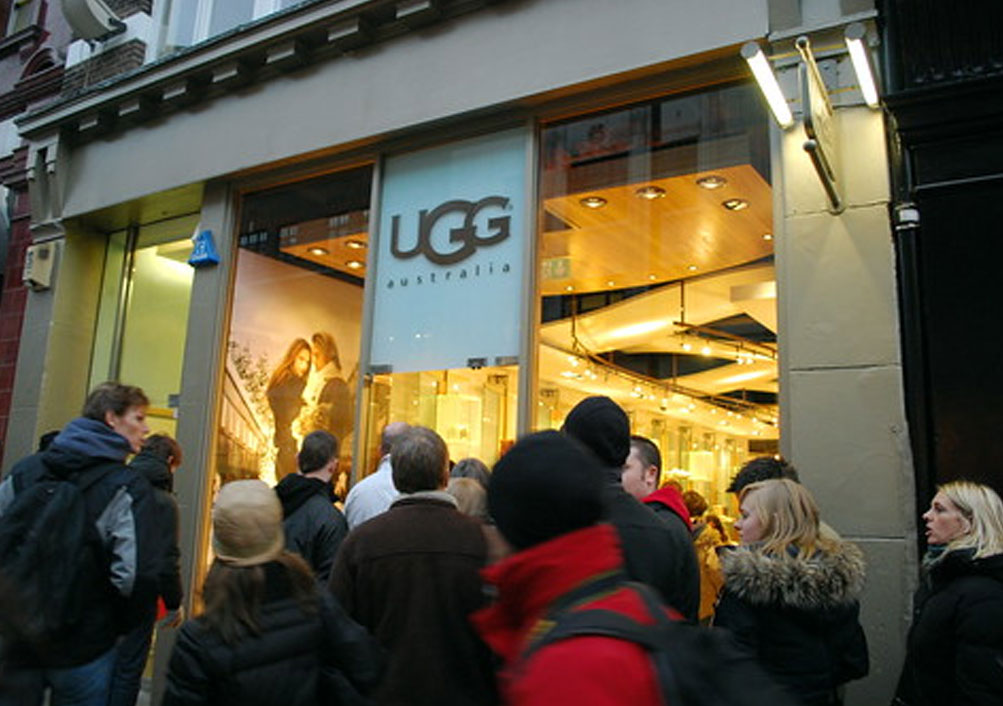Australian company loses Ugg trademark battle

The New York Times
Melbourne, May 10: An Australian company’s long-shot bid to scrap a U.S. trademark on the word “Ugg” has suffered another blow after an American appeals court rejected its argument, in a loss that could have far-reaching consequences for Australian makers of the sheepskin boots.
It’s the latest step in a five-year, high-stakes legal battle between the brand’s owner in the United States, Deckers Outdoor Corporation, and a company called Australian Leather. They have been wrangling over ownership of the name of a shoe that has been derided as unfashionable and downright ugly but that has still found its way onto the feet of celebrities like Oprah Winfrey and Tom Brady.
The Australian news media called the lawsuit a “David vs. Goliath” battle, and the case hit a nerve for many Australians, who consider the footwear a national, albeit unfashionable, symbol. The case also illustrated how global access to products on the internet could create clashes between local legal systems.
Australian Leather’s owner, Eddie Oygur, said after the court ruling on Friday that he would take the case to the U.S. Supreme Court.
“This is not just about me; it is about Australia taking back ‘ugg,’” Mr. Oygur said. “The trademark should never have been given in the first place to the U.S.”
In Australia, the word is used as a catchall term for sheepskin boots lined with fleece that have been made since the 1930s. They were popularized by surfers in the 1960s. The term isn’t trademarked there, and anyone can sell ugg boots. It was registered as a brand in the United States in the 1980s by the Australian entrepreneur Brian Smith.
Deckers said it had fairly bought the name from Mr. Smith, that it had trademarked “UGG Australia” in the United States in 1995, and that American consumers knew it as a brand name rather than as a generic term. Deckers holds the trademark in more than 130 countries, meaning Australians are largely prevented from selling their boots internationally.
Deckers took Australian Leather to court in 2016, claiming trademark infringement because Mr. Oygur had sold 13 pairs of ugg boots in the United States through his website. Mr. Oygur did not deny the boot sales but argued that Deckers should never have been able to trademark the term “ugg” in the first place.
“We should be able to sell our ugg boots worldwide,” Mr. Oygur said. “It’s generic here, and it’s an Australian product.”
He also argued that uggs used to be generic in the United States, with numerous entrepreneurs selling them across the country before they were trademarked, and that the term warranted similar protection in Australia to the French “Champagne” and Greek “Feta.”
In 2019, the U.S. District Court for the Northern District of Illinois found in favor of Deckers, ruling that although ugg was a generic term in Australia, it had no such meaning in the United States. It also ruled that the term was not subject to the “doctrine of foreign equivalents,” a legal guideline in the United States that says foreign words for categories of items cannot be trademarked, and that Mr. Oygur had willfully infringed on Deckers’s trademark. Mr. Oygur was ordered to pay $450,000.
Mr. Oygur challenged the decision in the United States Court of Appeals for the Federal Circuit. In court documents filed ahead of the appeal, his lawyers argued that the U.S. District Court had used the wrong standards to judge whether something was generic. In its own documents, Deckers countered that the judge had used the right test and cited survey evidence that most U.S. consumers recognize Ugg as a brand.
On Friday, the court affirmed the original court’s decision. It did not give any reasons.
Tom Garcia, the chief administrative officer of Deckers, said in a statement before the verdict that the company believed there was no merit to the appeal.
Sign up for our weekly newsletter to stay up to date on our product, events featured blog, special offer and all of the exciting things that take place here at Legitquest.




Add a Comment